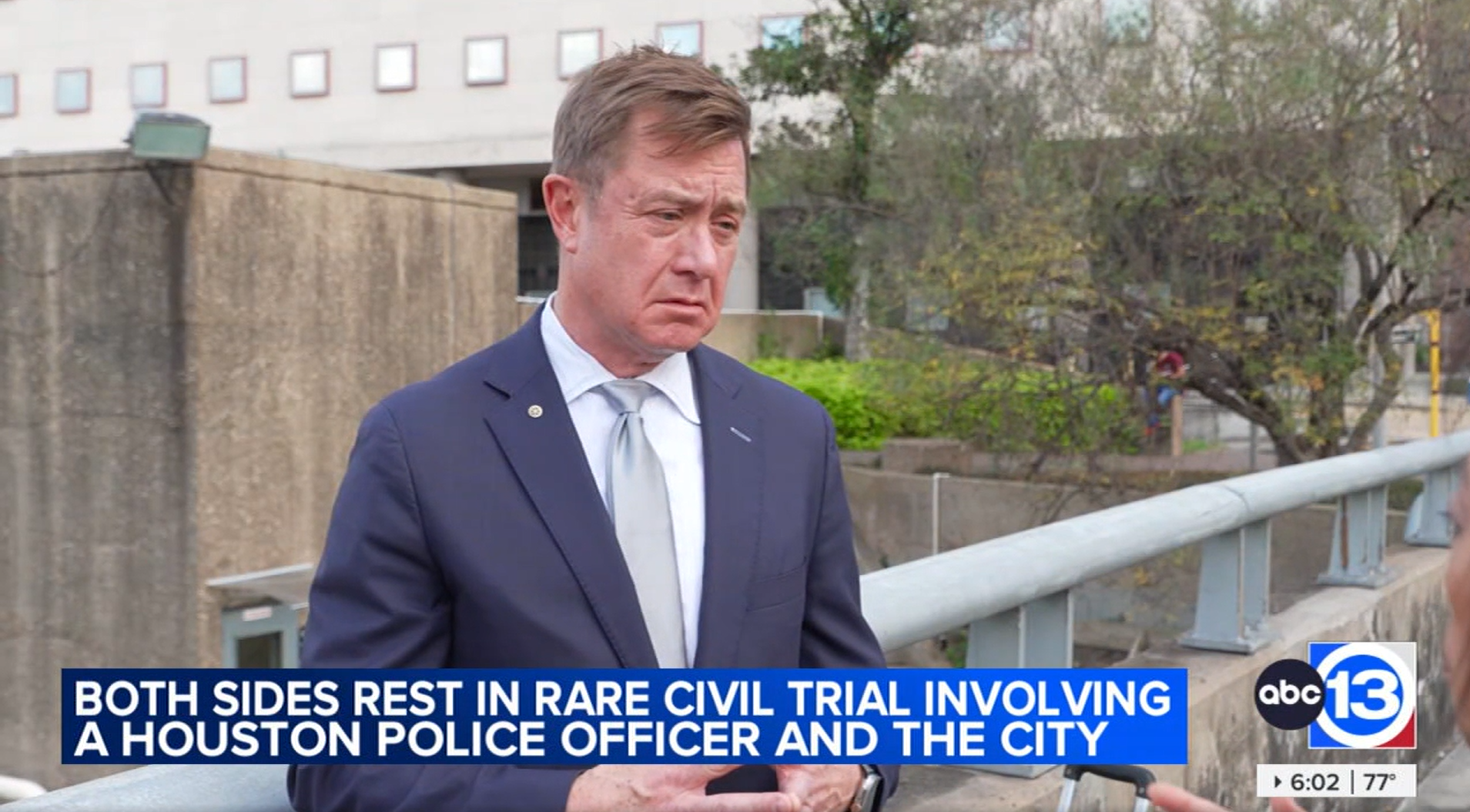Federal Jury to Decide Whether Houston Bears Responsibility in Holiday Tragedy: Attorney Michael Wynne Weighs In With ABC News
A rare and closely watched civil trial in federal court is now in the hands of a jury. At issue is whether the City of Houston and one of its police officers should be held accountable for the death of 75-year-old Charles Payne, who was struck and killed by a patrol car the day after Christmas in 2021.
Payne, a beloved husband, father, and churchgoer, was driving home from a Sunday service on December 26 when a Houston Police Department vehicle—traveling nearly 70 miles per hour in a 35-mph zone—collided with his car. Surveillance video captured the violent impact. Payne died shortly after from multiple blunt-force injuries, according to the Harris County medical examiner.
For Payne’s family, the past three years have been defined by grief and a relentless pursuit of accountability. Their lawsuit argues that Officer Christopher Cabrera’s excessive speed, combined with the City of Houston’s lack of adequate training and guidance for emergency driving, directly caused Payne’s death.
A Case That Rarely Sees a Courtroom
Former federal prosecutor Michael Wynne, who was interviewed by Houston’s ABC13 on the final day of trial, emphasized just how unusual it is for a case like this to go before a jury at all.
“It bodes very well for the plaintiffs that it got past the largest impediment for somebody bringing a civil rights action in federal court,” Wynne explained. “Which is the government, or the city in this case, saying the king can do no wrong.”
Government agencies often rely on sovereign immunity to avoid civil liability. The fact that this lawsuit proceeded to trial signals both the legal significance of the claims and the court’s recognition that the issues deserve to be weighed by a jury.

City’s Defense: A Medical Explanation
On the last day of testimony, the City of Houston called just one witness. Their medical expert, Dr. Kenneth Totz, testified that Payne may have suffered a heart attack before the collision—suggesting that the cardiac event, rather than the crash, was the true cause of death.
But Wynne sees that argument as unlikely to sway jurors.
“What really matters is the officer’s conduct,” he said. “The causation is going to determine the amount of damages.”
Because the officer was indisputably traveling at twice the posted speed limit, Wynne noted that the focus is more likely to remain on the choices made in the moments leading up to the crash.
Did the City Fail to Properly Train Its Officers?
Beyond Officer Cabrera’s speed, another critical question is whether the City of Houston failed to provide clear guidelines and adequate training regarding emergency driving. The plaintiffs argue that the city gave officers broad discretion without meaningful limits—putting both the public and officers at risk.
Wynne believes that aspect of the case could weigh heavily with jurors:
“They’re given some leeway, but they clearly went over it,” he said. “And the absence of appropriate training and guidelines by the city… that’s going to weigh heavily in the plaintiff’s favor.”
Closing Arguments and the Road Ahead
Both the plaintiffs and the defense are set to deliver 30-minute closing arguments before the case is handed to the federal jury. Their decision will determine not only whether the city and Officer Cabrera are legally responsible for Payne’s death—but also what accountability looks like when government power intersects with public safety.
As this rare and emotionally charged civil rights case reaches its final stage, the Payne family waits for a verdict that could bring long-awaited answers—and potentially influence how Houston trains and supervises its police officers in the future.



